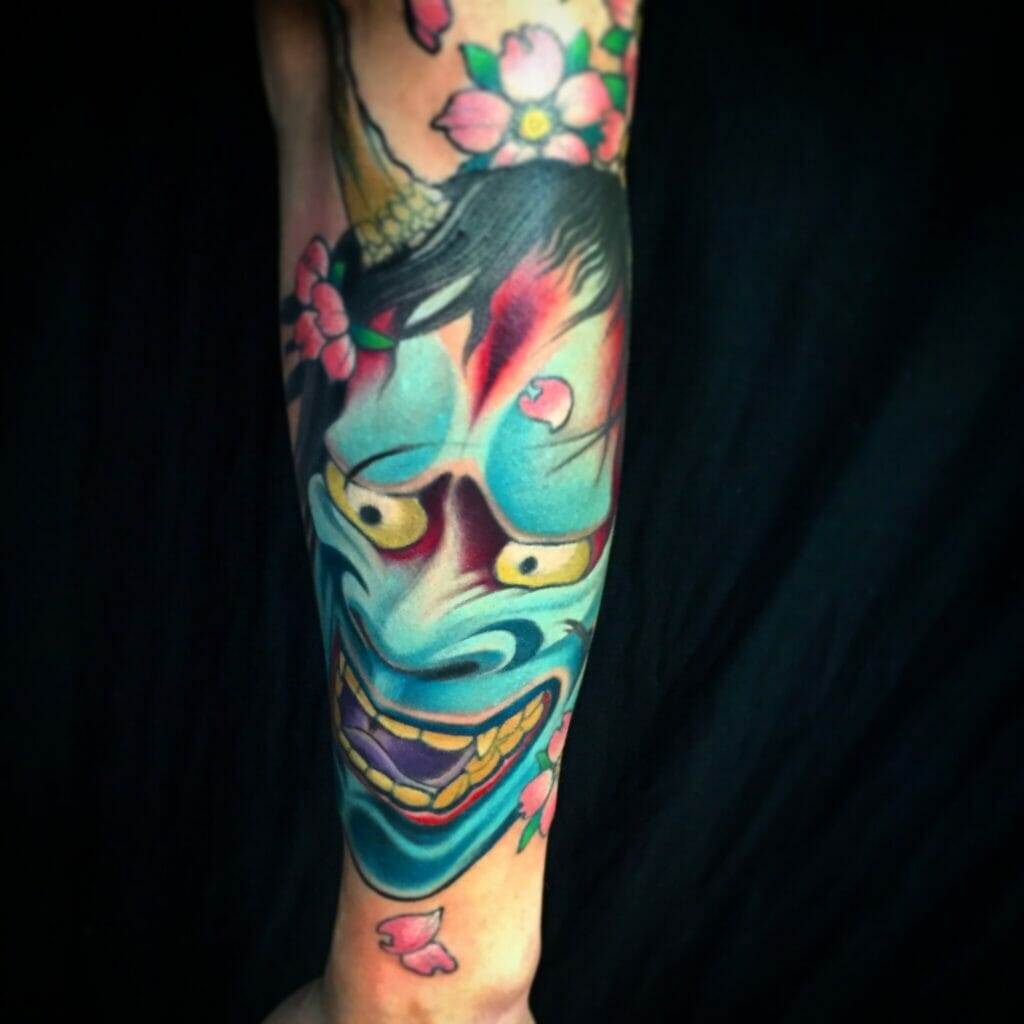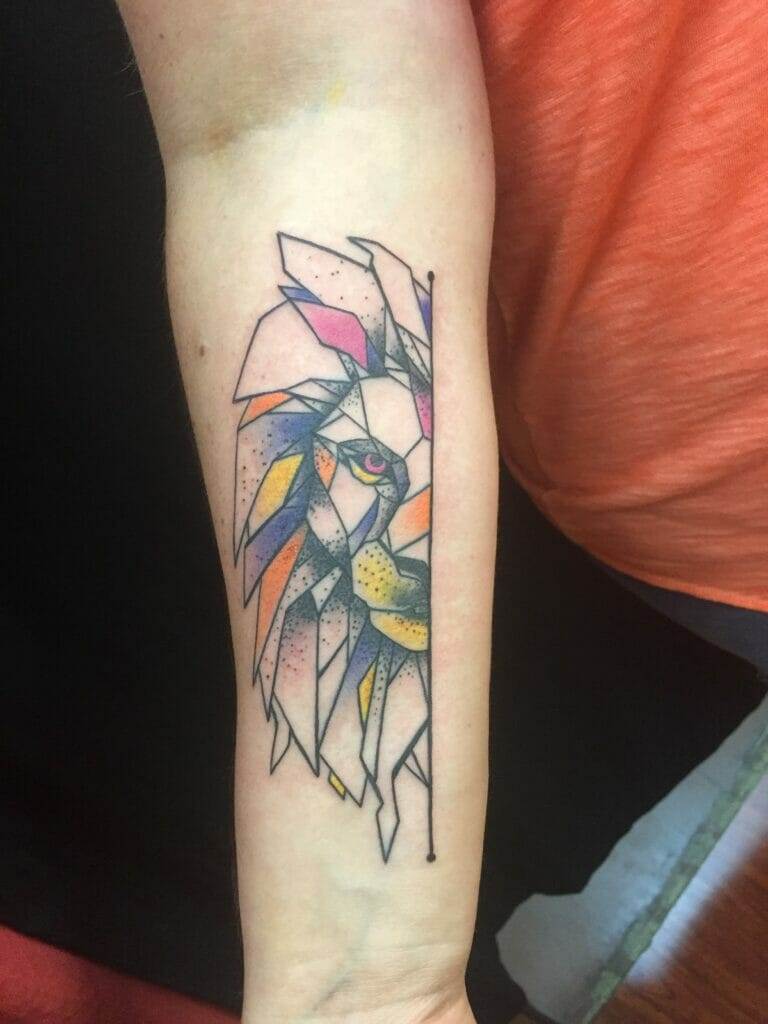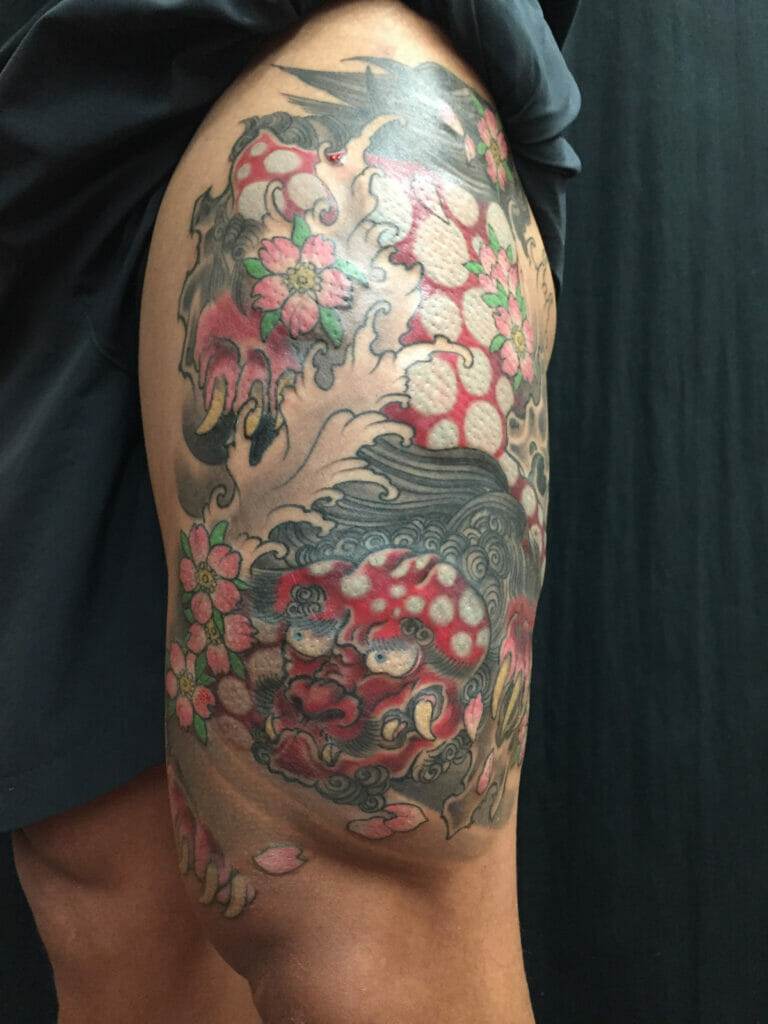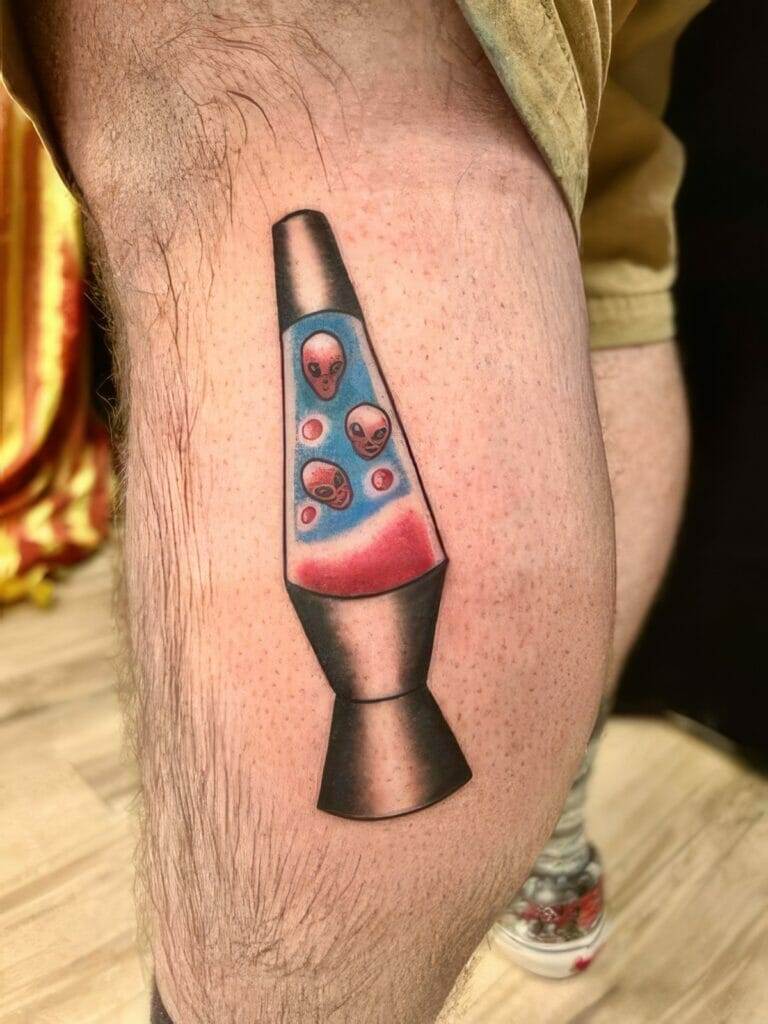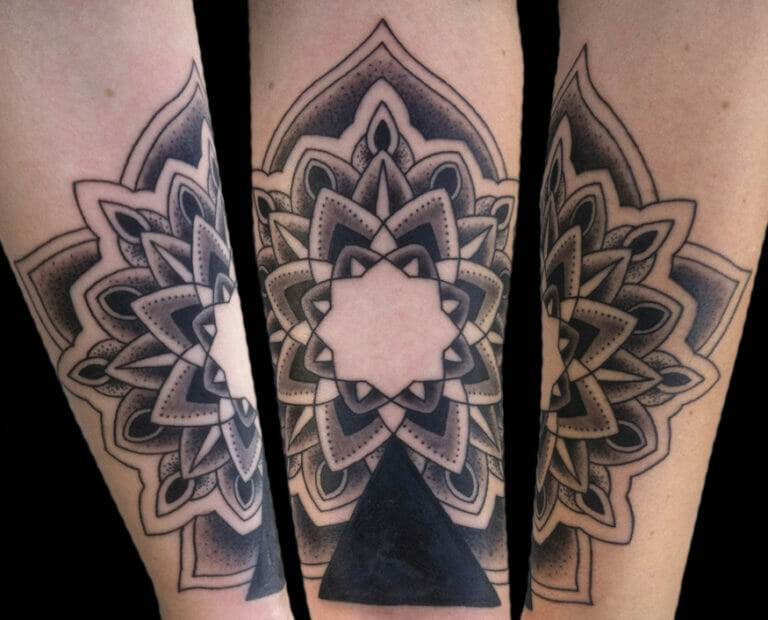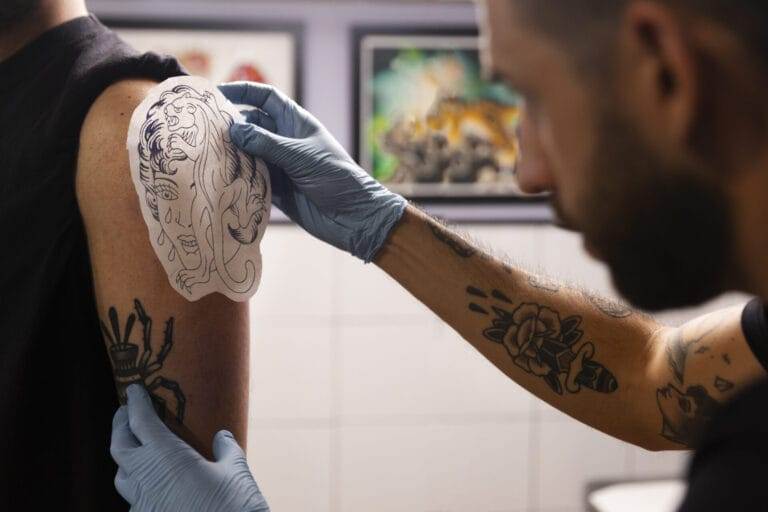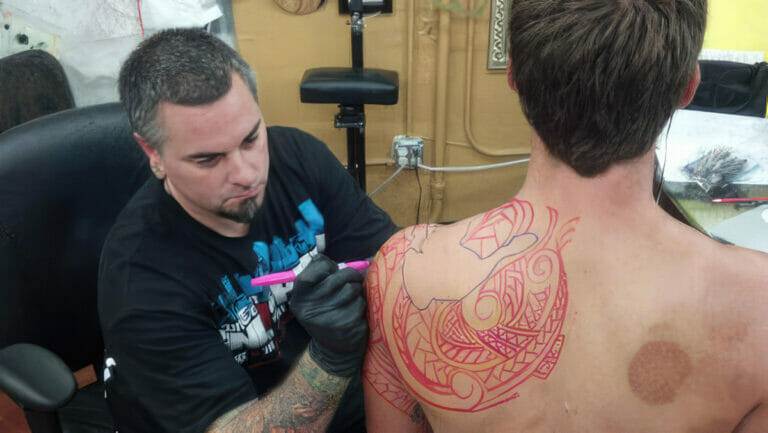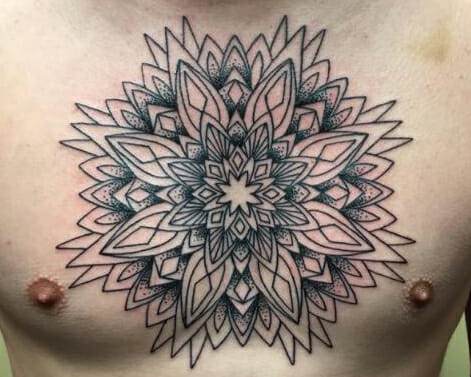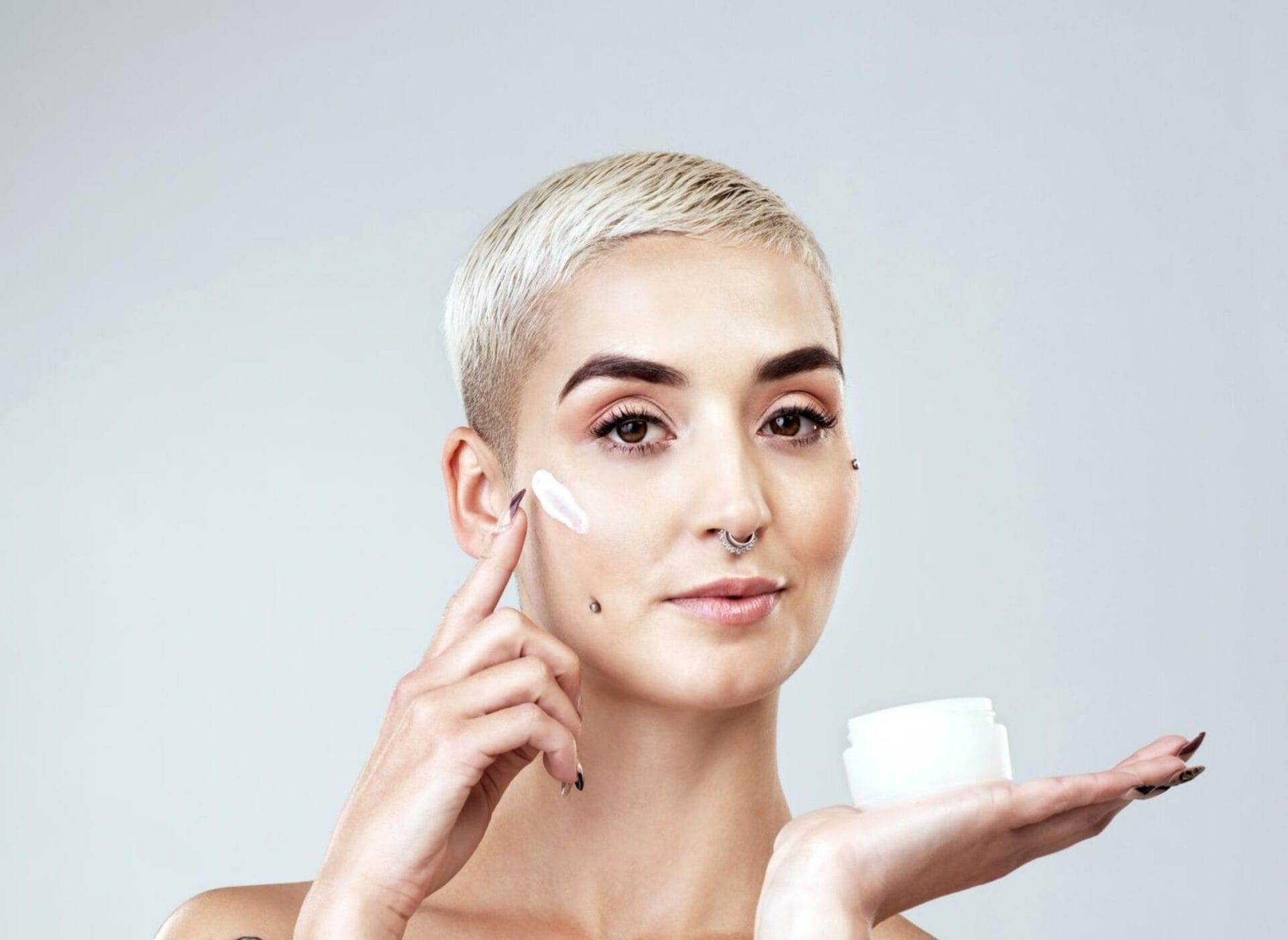
Tattoos have become increasingly popular in recent years, with more and more people choosing to get inked. However, getting a tattoo is not just about the design and the process itself. It also requires proper care and maintenance to ensure that it lasts a lifetime. Taking care of your tattoo is essential to prevent infections, fading, and other complications that can arise if proper care is not taken.
Pre-Tattoo Care
Before getting a tattoo, there are several steps you can take to ensure that the process goes smoothly and that your tattoo heals properly. One of the most important aspects of pre-tattoo care is researching the tattoo artist and shop. Make sure to choose a reputable artist who has experience in the style you want and who follows proper hygiene practices.
Preparing your skin for the tattoo is also crucial. This includes keeping the area clean and moisturized in the days leading up to your appointment. Avoid using any harsh soaps or exfoliants on the area, as this can irritate the skin and make it more difficult for the tattoo to heal properly.
It is also important to avoid alcohol and blood thinners before getting tattooed. These substances can thin your blood and increase bleeding during the tattooing process, making it more difficult for the ink to stay in the skin. Additionally, make sure to eat a healthy meal before your appointment to ensure that you have enough energy for the process.
Post-Tattoo Care
Once you have gotten your tattoo, proper aftercare is crucial for ensuring that it heals properly and looks its best. The first step is to keep the tattoo bandaged for a few hours after getting it done. This helps to protect it from bacteria and other contaminants in the environment.
After removing the bandage, gently clean the tattoo with mild soap and warm water. Avoid using any harsh cleansers or scrubbing too hard, as this can damage the tattoo and slow down the healing process. Pat the tattoo dry with a clean towel and avoid rubbing it.
It is important to avoid tight clothing and excessive sweating in the days following getting a tattoo. Tight clothing can rub against the tattoo and cause irritation, while excessive sweating can lead to infection. Opt for loose-fitting clothing and try to avoid activities that will make you sweat excessively.
Keeping the tattoo moisturized is also crucial for proper healing. Apply a thin layer of fragrance-free, alcohol-free moisturizer to the tattoo several times a day. This will help to keep the skin hydrated and prevent it from drying out, which can lead to cracking and scabbing.
Finally, it is important to avoid direct sunlight and swimming in the days following getting a tattoo. Sun exposure can cause the tattoo to fade and swimming can introduce bacteria into the healing skin, increasing the risk of infection.
Cleaning Your Tattoo
Proper cleaning of your tattoo is essential for preventing infections and promoting proper healing. It is important to follow the aftercare instructions provided by your tattoo artist, as they may have specific recommendations for cleaning your tattoo.
When cleaning your tattoo, it is important to use gentle, fragrance-free soap and warm water. Avoid using any harsh cleansers or scrubbing too hard, as this can damage the tattoo and slow down the healing process. Gently lather the soap on the tattoo and rinse thoroughly with warm water.
After cleaning, pat the tattoo dry with a clean towel. Avoid rubbing or scrubbing the tattoo, as this can cause irritation and slow down the healing process. Once dry, apply a thin layer of fragrance-free, alcohol-free moisturizer to keep the skin hydrated.
It is important to avoid picking or scratching at your tattoo, as this can introduce bacteria into the healing skin and increase the risk of infection. If you notice any scabbing or peeling, let it happen naturally and avoid picking at it.
Moisturizing Your Tattoo
Moisturizing your tattoo is an important part of the aftercare process. Keeping the skin hydrated helps to prevent cracking and scabbing, which can lead to complications and affect the overall appearance of the tattoo.
When choosing a moisturizer for your tattoo, opt for a fragrance-free, alcohol-free product. These types of moisturizers are less likely to irritate the skin and can help to keep it hydrated without causing any adverse reactions.
Apply a thin layer of moisturizer to your tattoo several times a day, or as recommended by your tattoo artist. Make sure to massage the moisturizer into the skin gently, using circular motions. This will help to promote blood flow and ensure that the moisturizer is absorbed properly.
It is important not to over-moisturize your tattoo, as this can lead to excessive moisture and slow down the healing process. Apply a thin layer of moisturizer and allow it to absorb into the skin before applying more.
Protecting Your Tattoo
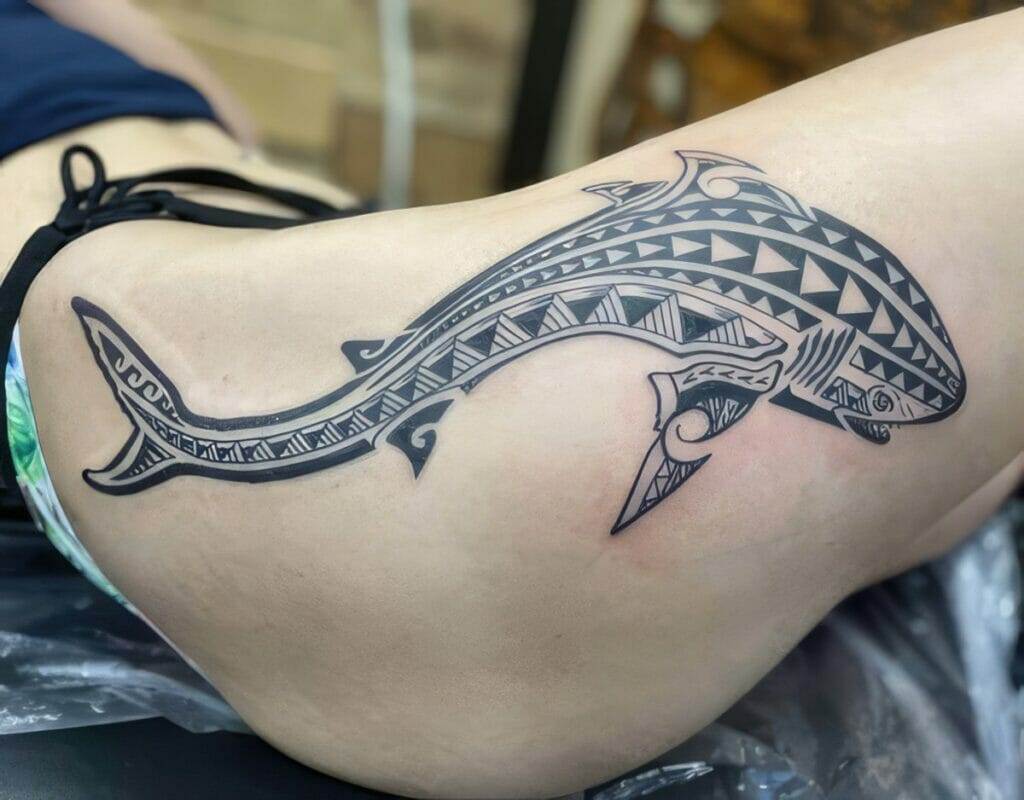
Protecting your tattoo from the sun and other elements is crucial for maintaining its vibrancy and preventing fading. Direct sunlight can cause the ink to fade over time, while exposure to harsh elements such as wind and cold can also affect the appearance of the tattoo.
One of the best ways to protect your tattoo from the sun is by using sunscreen. Choose a broad-spectrum sunscreen with a high SPF and apply it generously to your tattoo before going outside. Reapply every two hours or as directed on the sunscreen label.
In addition to sunscreen, wearing protective clothing can also help to shield your tattoo from the sun. Opt for lightweight, breathable fabrics that cover the tattooed area. This will not only protect your tattoo from the sun but also prevent irritation from rubbing against clothing.
If you engage in physical activities such as sports or exercise, it is important to take extra precautions to protect your tattoo. Avoid wearing tight clothing that can rub against the tattoo and cause irritation. If necessary, cover the tattoo with a clean, breathable bandage to protect it during physical activities.
Avoiding Infections
Preventing infections in your tattoo is crucial for proper healing and maintaining the overall appearance of the tattoo. Infections can occur if bacteria or other contaminants enter the healing skin, so it is important to take proper precautions to prevent this from happening.
One of the most important steps in preventing infections is following the aftercare instructions provided by your tattoo artist. They may have specific recommendations for cleaning and caring for your tattoo, so make sure to follow their advice.
Signs of infection in a tattoo include redness, swelling, increased pain or tenderness, pus or discharge, and a fever. If you notice any of these symptoms, it is important to seek medical attention as soon as possible. Infections can be serious and may require antibiotics to treat.
Touching Up Your Tattoo
Over time, tattoos may fade or lose their vibrancy. When this happens, it may be necessary to touch up your tattoo to restore its appearance. Touch-ups involve going back to your tattoo artist and having them add more ink to the faded areas.
The timing of touch-ups will vary depending on several factors, including the quality of the ink used and how well you have taken care of your tattoo. In general, touch-ups are usually done after the initial healing process is complete, which can take several weeks.
It is important to go to a reputable tattoo artist for touch-ups. They will have experience in matching colors and ensuring that the touch-up blends seamlessly with the rest of the tattoo. Make sure to follow their aftercare instructions for the touch-up to ensure proper healing.
After getting a touch-up, it is important to continue caring for your tattoo as you did when it was first done. This includes keeping it clean, moisturized, and protected from the sun and other elements. Following proper aftercare instructions will help to ensure that your touch-up heals properly and looks its best.
Tattoo Fading
Tattoo fading is a common concern for many people, as it can affect the overall appearance of the tattoo. There are several factors that can contribute to tattoo fading, including sun exposure, age, and the quality of the ink used.
One of the best ways to prevent tattoo fading is by protecting your tattoo from the sun. Sun exposure can cause the ink to fade over time, so it is important to use sunscreen and wear protective clothing when going outside.
Age can also contribute to tattoo fading, as the skin naturally loses elasticity and collagen over time. While there is no way to completely prevent this, taking proper care of your tattoo can help to slow down the fading process and keep it looking vibrant for longer.
The quality of the ink used can also affect how well a tattoo holds up over time. Choosing a reputable tattoo artist who uses high-quality ink is crucial for ensuring that your tattoo lasts. Make sure to do your research and ask for recommendations before getting a tattoo.
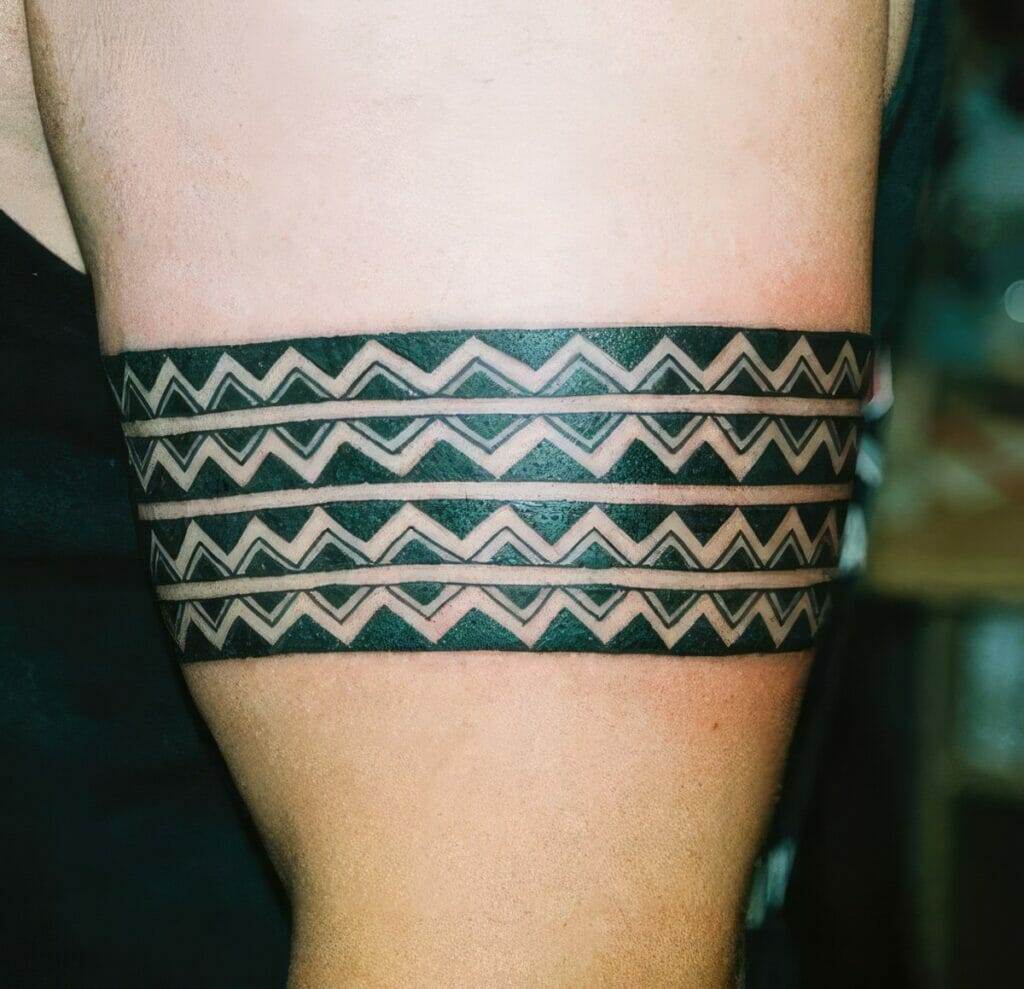
Removing Your Tattoo
While tattoos are meant to be permanent, there may come a time when you decide that you want to remove your tattoo. There are several options for tattoo removal, including laser removal, surgical removal, and dermabrasion.
Before deciding to get a tattoo removed, it is important to consider several factors. Tattoo removal can be expensive, time-consuming, and may not always be successful in completely removing the tattoo. It is important to research your options and seek professional advice before making a decision.
When researching tattoo removal options, make sure to consult with a reputable professional who has experience in tattoo removal. They will be able to assess your specific situation and recommend the best course of action for removing your tattoo.
Taking care of your tattoo is essential for ensuring that it lasts a lifetime and looks its best. Proper tattoo care includes pre-tattoo care, post-tattoo care, cleaning, moisturizing, protecting, and avoiding infections. By following these steps and taking proper precautions, you can ensure that your tattoo remains vibrant and beautiful for years to come. Remember to always consult with a professional tattoo artist and seek their advice for specific aftercare instructions.

